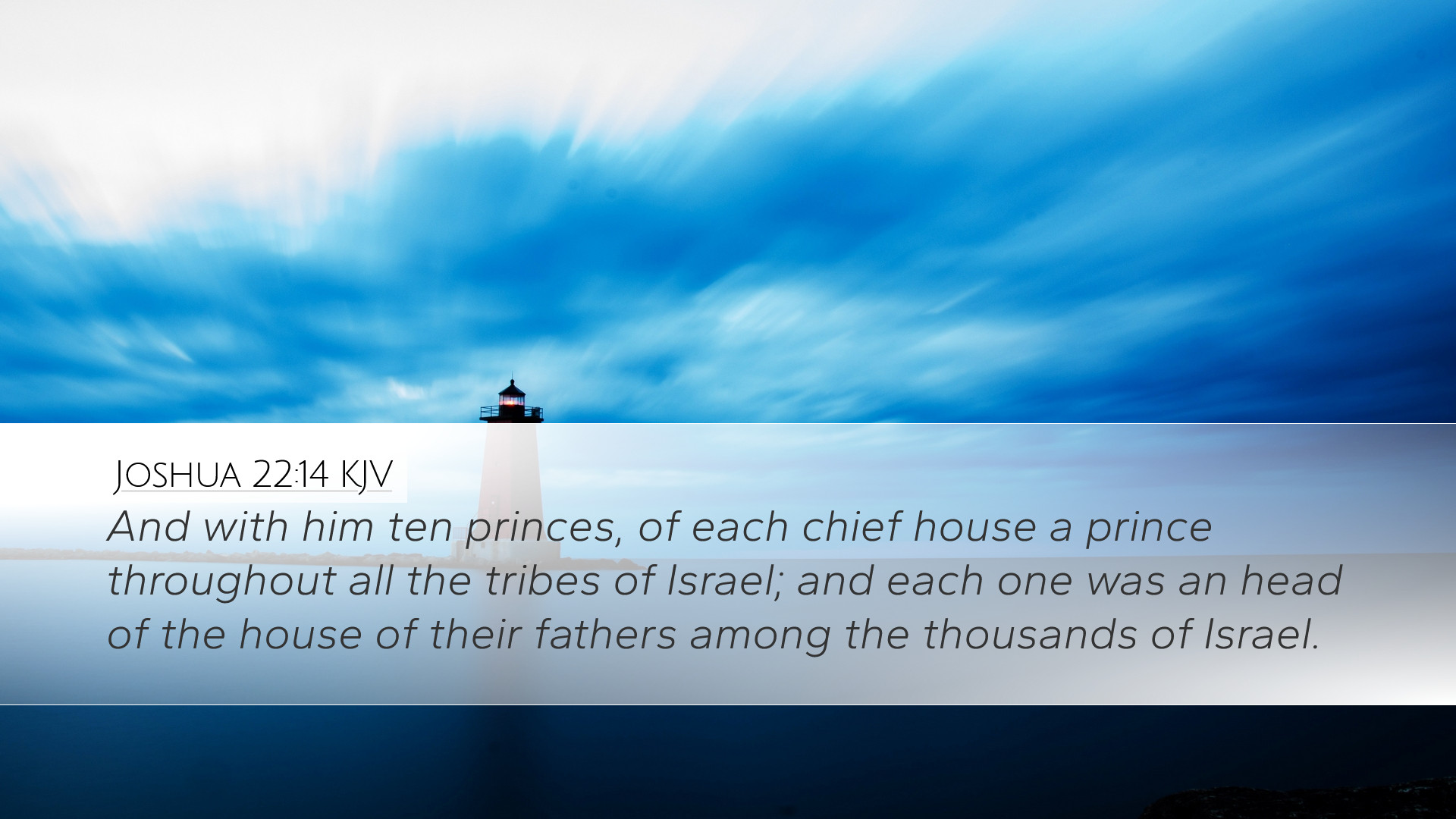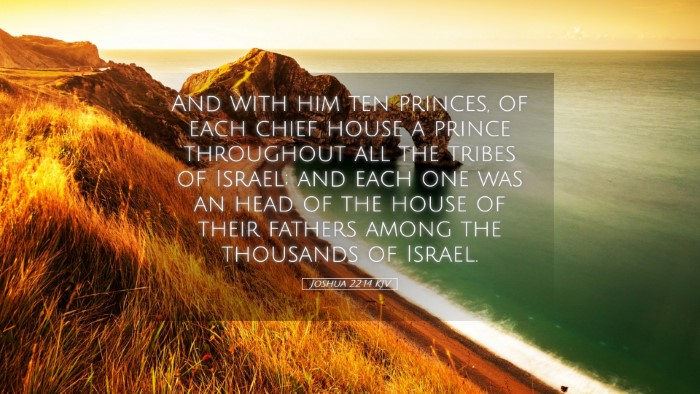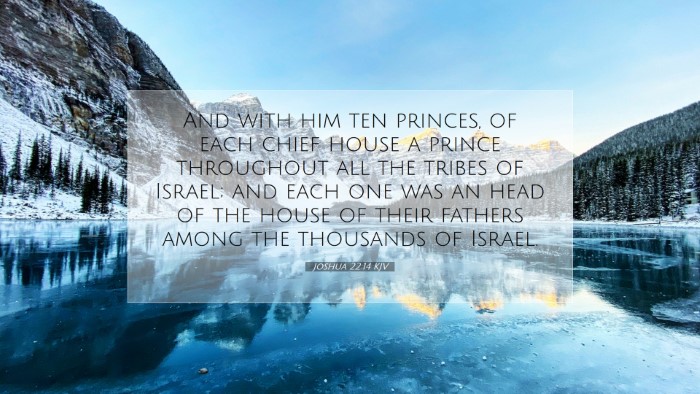Commentary on Joshua 22:14
Joshua 22:14 states: "And ten princes of the tribes of Israel, which were heads of the house of their fathers, and anointed for the congregation, were sent from the children of Israel." This verse comes at a pivotal moment in the narrative of the Israelites, reflecting a deep interplay of leadership, community dynamics, and the importance of unity among God’s people.
Contextual Background
This passage occurs after the Israelites have entered the Promised Land, a moment filled with historical significance. The Reubenites, Gadites, and half-tribe of Manasseh have settled on the eastern side of the Jordan River. Their decision to remain there raises concerns amongst their brethren regarding loyalty to the covenant community.
Leadership and Representation
In this verse, the mention of "ten princes of the tribes of Israel" highlights the importance of leadership in addressing communal concerns. Matthew Henry emphasizes that these leaders represent the congregation and are tasked with safeguarding the unity of Israel. Each prince carries the weight of their tribe’s trust and must navigate the complexities of potential discord.
Significance of Anointed Leaders
Albert Barnes notes that the leaders were "anointed for the congregation," signifying their divine appointment to guide and protect the people. This anointing represents not only authority but also their responsibility before God and to their fellow Israelites. Leaders must possess a servant's heart rooted in faith and integrity.
The Role of Inquiry and Communication
The selection of the ten princes underscores the necessity of communication before conflict. Adam Clarke highlights how their mission reflects a biblical principle: choose to inquire before passing judgment. In a society often characterized by misunderstanding, these leaders were sent to clarify the intentions of the Reubenites, Gadites, and half-tribe of Manasseh, demonstrating a commitment to peace and unity.
Preventive Measures Against Division
The verse serves as a reminder of the efficiency of proactive dialogue. Rather than making assumptions or jumping to conclusions, the Israelites exemplified wisdom by seeking understanding first. Matthew Henry suggests that curiosity in leadership is commendable—leaders must seek the truth before making decisions that could lead to division.
Historical Implications within the Narrative
This event marks a significant moment in Israel’s history as they balance the integration of tribes while maintaining communal loyalty. Albert Barnes elaborates that the mission of the leaders embodies a pivotal theme in biblical narratives—the need for understanding and reconciliation amidst potential strife.
Unity and the Danger of Factionalism
The narrative teaches that diverse expressions of faith should lead to unity rather than division. Each tribe contributes to the whole while maintaining its identity, thus preventing factionalism. Adam Clarke warns that failure to recognize the unity of God’s people can lead to significant pitfalls, including strife and division. When leaders prioritize unity, they reflect the heart of God’s design for His people.
Theological Reflections
In examining Joshua 22:14 through a theological lens, we uncover profound truths about God’s character and His intentions for His people.
God’s Desire for Unity
God desires His people to live in harmony, exemplified in the gathering of leaders to address potential conflicts. Matthew Henry observes that this passage illustrates the heart of God, who communes with His people through the establishment of leadership grounded in prayer and reconciliation.
Divine Appointment of Leadership
The anointing of the leaders serves as a powerful reminder that God equips those He calls. Their role is not just to lead but to shepherd the community towards righteousness. Albert Barnes articulates that leaders are not merely authority figures but servants called to guide through love and understanding.
Application for Today’s Church
Joshua 22:14 carries significant implications for contemporary church leadership and community dynamics.
Creating a Culture of Communication
Leaders today are similarly called to prioritize communication and transparency to foster unity within their congregations. Adam Clarke suggests that implementing forums for discussion and mutual understanding can prevent misunderstandings that may arise from diverse expressions of faith.
The Importance of Anointed Leadership
Churches should seek anointed leadership, prioritizing individuals who are not just skilled but spiritual, ensuring that leaders reflect the heart of God and embody the values of the kingdom. Matthew Henry emphasizes that true leadership is marked by humility and devotion to the well-being of others.
Conclusion
Joshua 22:14 invites reflections on leadership, community, and fidelity to divine calling. By drawing on the insights of historic commentaries, we uncover rich theological truths and practical applications relevant to both leaders and congregants. This passage serves as a golden principle for fostering relationships within and beyond the church, underlining our collective identity as members of God's family.


